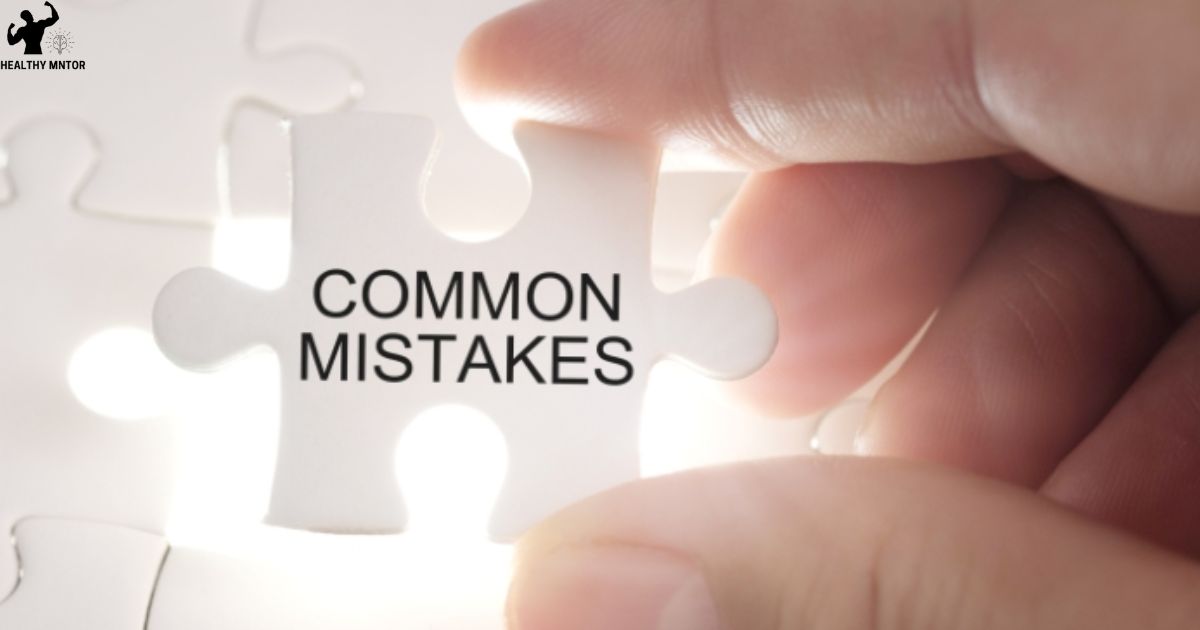Navigating the process of getting short-term disability approved for mental health can feel like traversing a complex maze. However, with the right knowledge and support, it is possible to successfully navigate this journey. In this article, we will guide you through the steps necessary to obtain the approval you deserve. Just as a skilled guide leads adventurers through treacherous terrain, we will provide you with the tools and information needed to overcome obstacles and secure the assistance you need during your mental health journey.
Key Takeaways
- Consultation with a healthcare professional is important for accurate diagnosis and documentation.
- Thorough and accurate evidence, including medical records and statements from healthcare providers, is crucial for a successful application.
- Meeting eligibility criteria, such as significant impairment of daily functioning and active treatment from a licensed healthcare professional, is crucial for approval.
- Seeking professional support and advocacy from disability advocates and attorneys specializing in disability law can greatly increase the chances of getting short-term disability approved for mental health.
Understanding Short-Term Disability for Mental Health
One in four workers may be eligible for short-term disability for mental health, making it crucial to understand the process and requirements for approval. Short-term disability benefits, often available through Health Insurance Directly From An Insurance Company, provide financial assistance to individuals who are temporarily unable to work due to mental health disorders. These benefits can help alleviate the financial burden and provide a sense of security during a challenging time. To qualify for short-term disability benefits, individuals must typically meet certain criteria, such as having a diagnosed mental health disorder that significantly impairs their ability to perform their job duties. It is important to consult with a healthcare professional to accurately diagnose and document the mental health condition. Additionally, individuals may need to provide medical records, treatment plans, and statements from healthcare providers to support their disability claim. Gathering the necessary documentation is a crucial step in the process of obtaining short-term disability benefits for mental health.
Gathering the Necessary Documentation
Effectively gathering the necessary documentation is essential in ensuring a smooth and successful process of obtaining short-term disability benefits for mental health. When applying for short-term disability benefits, it is crucial to provide thorough and accurate evidence to support your claim. This evidence typically includes medical records, which play a significant role in establishing the severity of your mental health condition and its impact on your ability to work.
To gather the necessary documentation, start by contacting your healthcare provider and request copies of your medical records, including psychiatric evaluations, treatment plans, and progress notes. These records provide objective evidence of your mental health condition and its impact on your daily functioning. Additionally, gather any supporting documents such as letters from therapists or psychiatrists, medication records, and any other relevant documentation.
Meeting the Eligibility Criteria
To ensure approval for short-term disability for mental health, it is crucial to meet the eligibility criteria. These criteria typically include having a mental health condition that significantly impairs daily functioning and prevents work, as well as providing the necessary documentation to support the claim. By meeting these requirements, individuals can increase their chances of receiving the support they need during their recovery process.
Eligibility Requirements for Approval
Disability Approved For Mental Health: Meeting the eligibility requirements for approval is crucial when applying for short-term disability for mental health. To ensure a successful application, it is important to understand the necessary documentation and criteria. Here are four key eligibility requirements to consider:
- Diagnosis: You must have a diagnosed mental health condition that significantly impairs your ability to work or perform daily activities.
- Treatment: You must be actively seeking treatment from a licensed healthcare professional, such as a psychiatrist or therapist.
- Duration: Your mental health condition must be expected to last for a specified period, usually a minimum of several weeks.
- Work history: You must have a sufficient work history, typically with a certain number of work credits, to qualify for short-term disability benefits.
Documentation Needed for Approval
Submitting the required medical records and employment documentation is essential for approval, as they provide the necessary evidence to support meeting the eligibility criteria. When applying for short-term disability for mental health, it is crucial to gather all relevant medical records, including diagnoses, treatment plans, and progress notes. These records should clearly demonstrate the severity of your condition and the impact it has on your ability to work. Additionally, submitting employment documentation, such as job descriptions and performance evaluations, can further support your claim. Meeting deadlines is also crucial in ensuring a smooth application process. Missing deadlines can result in delays or even denial of your application. Therefore, it is important to stay organized and stay abreast of the required documentation and submission dates. By meeting these requirements and deadlines, you increase your chances of a successful application.
Now, let’s explore some tips for filing a strong application.
Tips for Filing a Strong Application
When submitting your application for short-term disability, it is important to include all the required supporting documentation to strengthen your case. This may include medical records, treatment plans, and statements from healthcare providers. Additionally, be mindful of common application mistakes, such as incomplete or inconsistent information, as these can negatively impact the approval process. Taking these tips into consideration will help ensure a strong application that increases your chances of receiving the support you need.
Required Supporting Documentation
Applicants are advised to gather relevant medical records and other pertinent documents as essential supporting documentation for their short-term disability application. These documents play a crucial role in providing evidence of the applicant’s medical condition and its impact on their ability to work. To ensure a successful application, here are four key items to include:
- Medical records: These should include diagnosis, treatment plans, and progress notes from healthcare providers.
- Test results: Any relevant test results, such as lab reports or imaging studies, can help strengthen the case for disability benefits.
- Medication records: Providing details about prescribed medications and their effects can demonstrate the severity of the condition.
- Work-related documentation: Letters from employers, job descriptions, and performance evaluations can support the claim by illustrating the impact of the disability on work abilities.
Common Application Mistakes
One should be vigilant in avoiding common application mistakes, as they can greatly impact the approval process for short-term disability benefits. When applying for short-term disability benefits, it is crucial to ensure that the application is error-free and accurately reflects the individual’s condition and limitations. Common mistakes and application errors can lead to delays or even denial of benefits, causing additional stress and financial burden for the applicant. Some of the most common mistakes include incomplete or missing information, lack of supporting documentation, and failure to provide a detailed and comprehensive description of the disability. To avoid these errors, it is important to carefully review the application before submission, seek guidance from healthcare professionals or disability advocates, and provide all necessary documentation and evidence to support the claim. By avoiding these common mistakes, individuals can increase their chances of a successful approval process and obtain the short-term disability benefits they need.
Navigating the Appeals Process
During the appeals process, claimants must provide sufficient evidence to support their case and address any discrepancies identified by the reviewing committee. This can be a challenging task, as the appeals process can be complex and confusing. However, there are legal assistance options available to help claimants navigate this process and increase their chances of success. Some common challenges individuals may face during the appeals process include:
- Lack of understanding of the appeals process and requirements.
- Difficulty gathering and presenting relevant medical and supporting documentation.
- Limited knowledge of disability laws and regulations.
- Insufficient representation and guidance throughout the appeals process.
To overcome these challenges, claimants can seek legal assistance from disability advocates, attorneys specializing in disability law, or nonprofit organizations that provide free legal services. These professionals can provide valuable guidance, help gather necessary evidence, and advocate on behalf of the claimant to ensure a fair and thorough review of their case. Remember, you are not alone in this process, and there are resources available to support you.
Seeking Professional Support and Advocacy
Several disability advocates and attorneys specializing in disability law can provide valuable support and advocacy to individuals navigating the appeals process for short-term disability approval. When facing the challenges of seeking short-term disability for mental health conditions, it is crucial to have access to professional resources and legal assistance. These professionals understand the intricacies of disability law and can guide individuals through the complex appeals process, ensuring their rights are protected. With their knowledge and experience, disability advocates and attorneys can effectively advocate for individuals, helping them present a strong case for short-term disability approval. By offering compassionate support and expert advice, these professionals can alleviate the stress and uncertainty that often accompanies the appeals process. Seeking professional support and advocacy is an important step towards obtaining the necessary benefits for individuals with mental health conditions.
Taking Care of Your Mental Health During the Application Process
Importantly, it is essential to prioritize and actively maintain your mental well-being while navigating the application process for short-term disability. The stress and uncertainty that can come with this process can be overwhelming, but there are self-care strategies you can implement to manage your stress effectively. Here are four key strategies to help you take care of your mental health during the application process:
- Practice mindfulness and relaxation techniques: Engaging in activities such as deep breathing exercises, meditation, or yoga can help reduce stress and promote a sense of calm.
- Seek support from loved ones: Reach out to friends, family, or support groups who can provide emotional support and understanding during this challenging time.
- Take breaks and engage in self-care activities: Make time for activities that bring you joy and relaxation, such as reading, taking walks, or engaging in hobbies.
- Prioritize self-compassion: Be kind to yourself and acknowledge that you are doing your best. Avoid self-judgment and practice self-acceptance.
FAQ’s
Are There Any Specific Mental Health Conditions That Are More Likely to Be Approved for Short-Term Disability?
Certain mental health conditions may have a higher likelihood of being approved for short-term disability. Factors such as severity, functional impairment, and medical documentation provided play a crucial role in determining approval.
How Long Does the Application Process Typically Take?
The average processing time for a short-term disability application varies, but it typically takes several weeks to receive a decision. The documentation requirements may include medical records, treatment plans, and statements from healthcare professionals to support the claim.
Can I Receive Short-Term Disability Benefits if I Am Still Able to Work Part-Time?
While it is possible to receive partial benefits while working part-time on short-term disability, the approval process depends on various factors. It is crucial to consult with a professional and provide thorough documentation to support your claim.
What Happens if My Short-Term Disability Application Is Denied?
If your short-term disability application is denied, you may need to go through the reapplying process or appeal the denial. It is important to understand the reasons for the denial and gather any necessary supporting documentation to strengthen your case.
Are There Any Alternative Financial Resources Available if I Am Not Eligible for Short-Term Disability Benefits?
There are alternative financial resources available for individuals who are not eligible for short-term disability benefits. Financial assistance programs can provide support and help alleviate the financial burden during challenging times.
Conclusion
In conclusion, obtaining approval for short-term disability for mental health can be a complex and challenging process. However, by understanding the requirements, gathering the necessary documentation, and seeking professional support, individuals can increase their chances of success. It is important to navigate the appeals process if necessary and prioritize one’s mental health throughout the application process. By following these steps, individuals can work towards receiving the support and assistance they need during times of mental health challenges.







